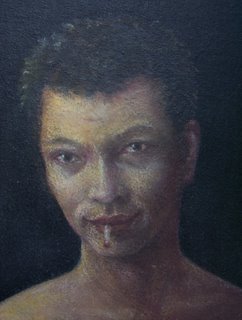* PRAXIS OMNIA VINCIT *
bom dia!
Thursday, August 12, 2010
About Me

- Name: Marcos Freitas
- Location: São Paulo/Rio/Recife, SP/RJ/PE, Brazil
Marcos Freitas was born in Pernambuco in 1963, lives in Sao Paulo, Artist and Art Teacher, founder of Illusions & Mistakes Studio (1997). The main feature in his work is a dialogue with a wide variety of art expressions. ... Marcos Freitas, pernambucano de 1963, residente em São Paulo, Artista Plástico e Arte-Educador, fundador do Atelier Enganos e Ilusões (1997). Tem como principal característica de seu trabalho o diálogo com as mais diversas expressões e linguagens das artes.
Visit Brooklyn Art Project

Previous Posts
- andy's interesting quote
- ...EDAX RERVM
- sometimes
- take care baby
- and...
- in.difference
- perception (2)
- perception (1)
- "fear eats the soul"
- fool moon
Subscribe to
Comments [Atom]
- http://www.law.cornell.edu/uscode/17/107.shtml . If you wish to use copyrighted material from this site for purposes of your own that go beyond 'fair use', you must obtain permission from the copyright owner.



1 Comments:
The concept greatly resembles the Bhavacakra, or Wheel of Becoming, depicted throughout Ancient Indian art and literature. In Ancient Rome, the Wheel of the goddess Fortuna has been mentioned at least as early as Cicero. Fortuna eventually became Christianized: the Roman philosopher Boethius (d. 524) was a major source for the medieval view of the Wheel, writing about it in his Consolatio Philosophiae.this is crap none of it is truese whom she strives to deceive, until she overwhelms them with grief beyond bearing, by deserting them when least expected … Are you trying to stay the force of her turning wheel? Ah! dull-witted mortal, if Fortune begin to stay still, she is no longer Fortune.
~ Boethius, Consolation of Philosophy (Text)
Post a Comment
Subscribe to Post Comments [Atom]
<< Home